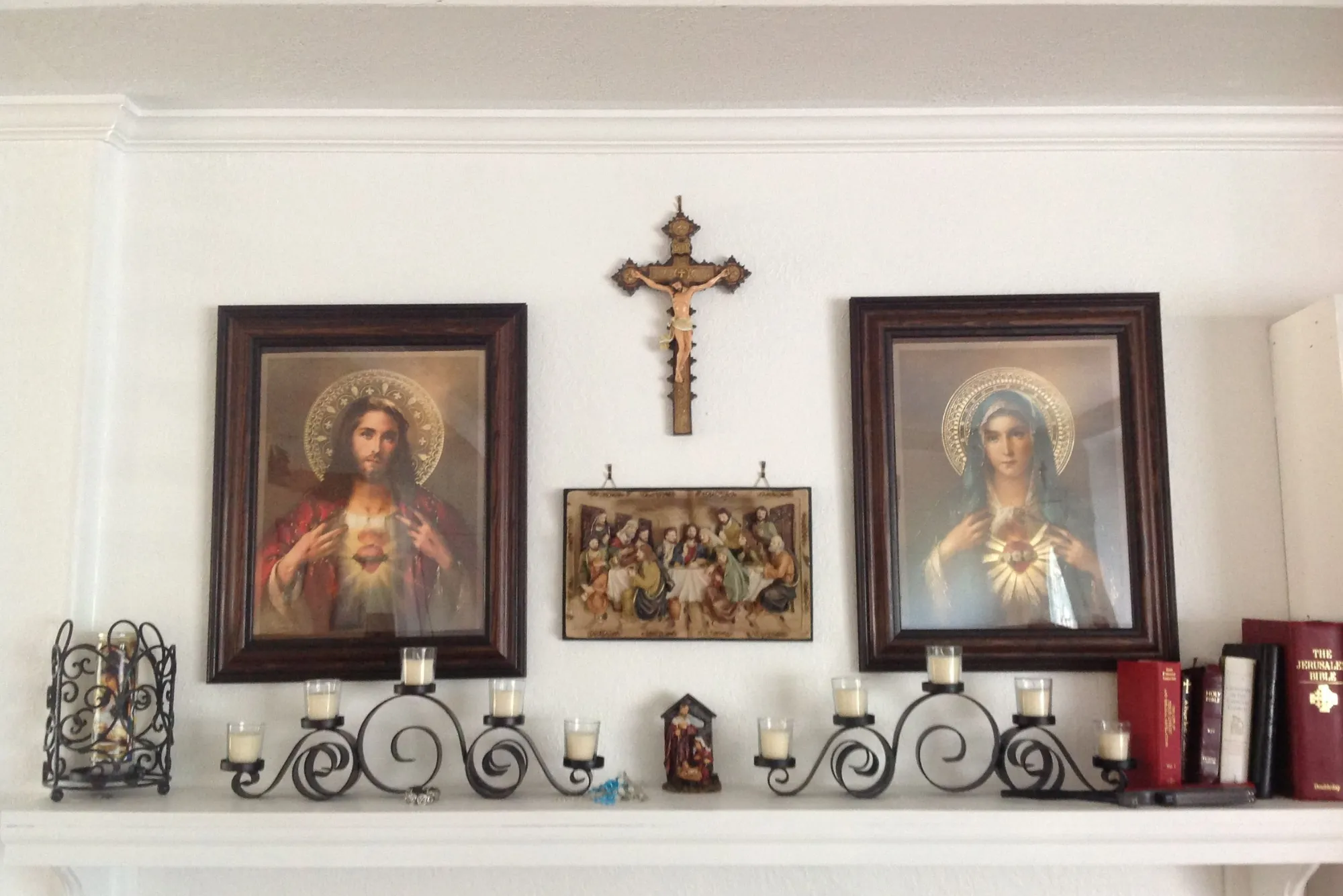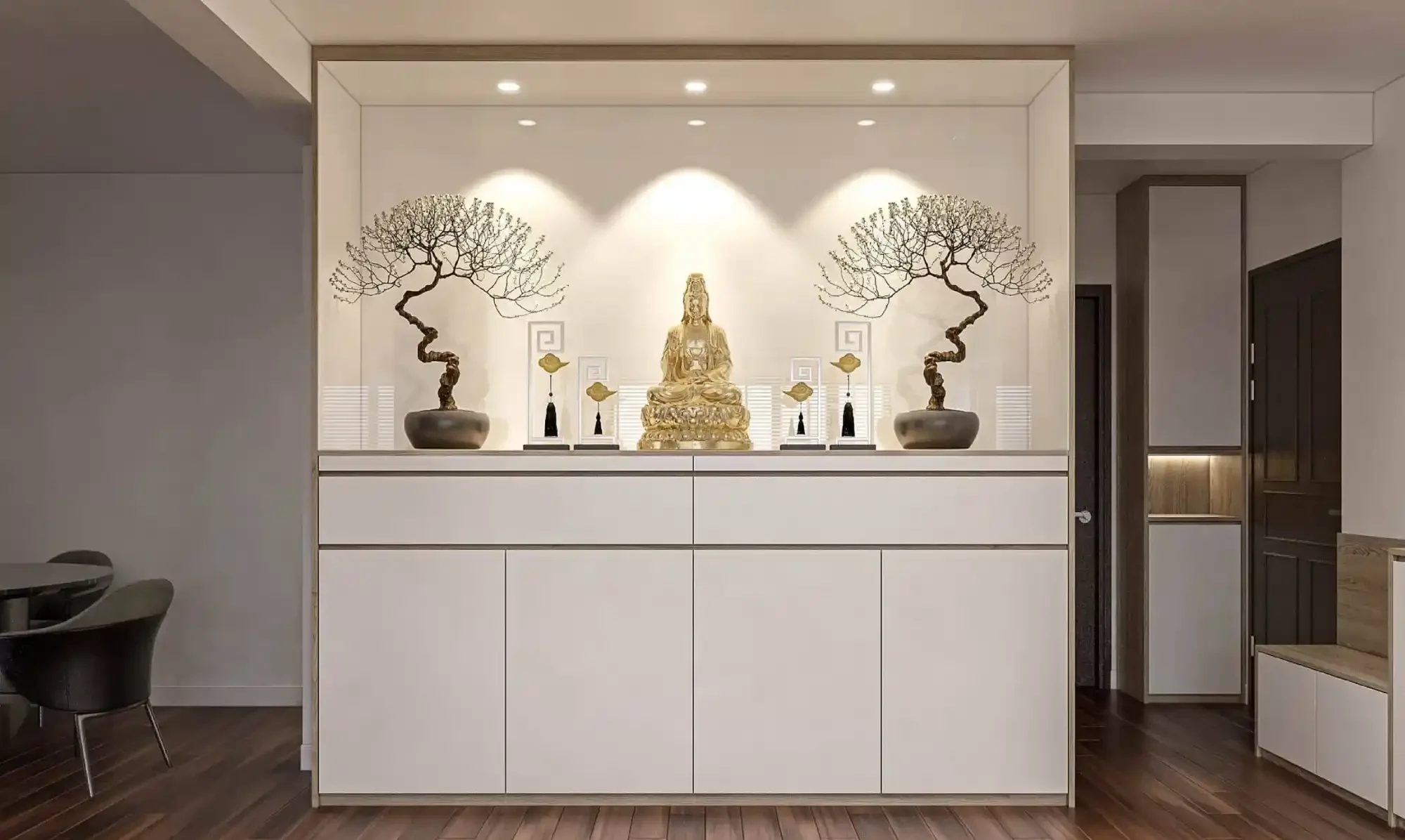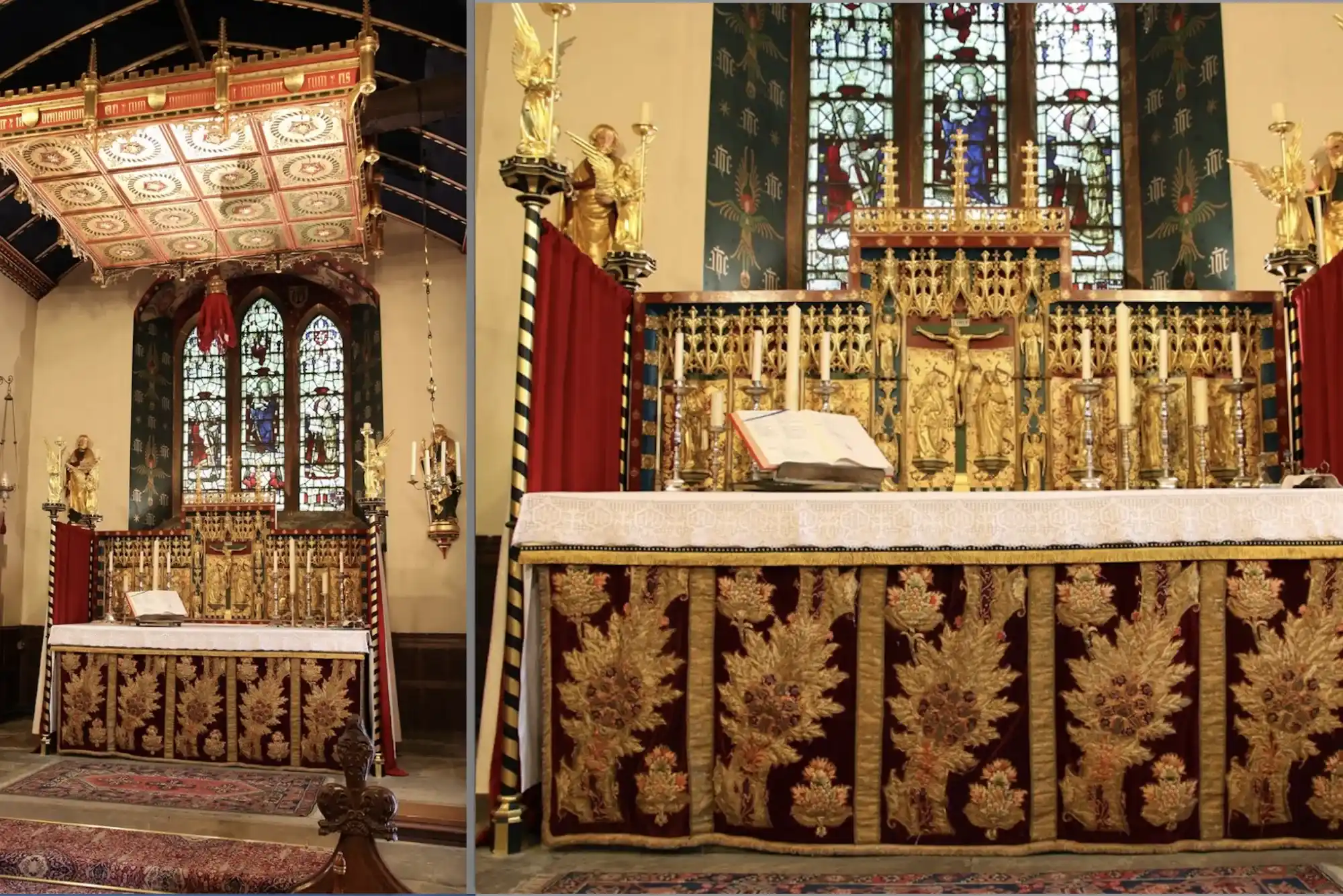Creating a wall-mounted Catholic altar within your home can be a deeply fulfilling way to cultivate a sacred space for prayer and meditation. This personal altar not only enhances the spiritual ambiance of your home but also provides a designated area for reflection and worship. In this comprehensive guide, we explore various aspects of designing and incorporating a wall-mounted altar, including its purpose, design considerations, essential components, and installation and maintenance tips.
Understanding the Purpose of a Catholic Altar

The Catholic altar holds significant importance in religious practice, serving as the focal point where the Eucharist is celebrated. In a home setting, a wall-mounted altar translates this sacred purpose into a personal space dedicated to daily prayers, spiritual reflection, and meditation. It symbolizes a sanctuary where the divine can be approached with reverence and peace. The altar acts as a visual and functional reminder of one’s faith, fostering a deeper connection to spiritual practices within the comfort of your own home.
Design Considerations for a Wall-Mounted Altar
When designing a wall-mounted altar, several key factors must be considered to ensure it harmoniously integrates into your home while serving its spiritual function. The first consideration is the space and placement of the altar. The chosen location should be both quiet and accessible, allowing for undisturbed prayer time. Ideally, the altar should be positioned in a dedicated room or a special corner of a room that emphasizes tranquility and focus. It is crucial to select a wall that can adequately support the weight of the altar and any items placed upon it, ensuring stability and safety.
The style and aesthetics of the altar are also essential. Catholic altars come in a variety of designs, ranging from traditional to modern. Traditional altars often feature intricate wood carvings, ornate gilded accents, and elaborate religious imagery, reflecting a classic sense of reverence and history. Modern designs, in contrast, may embrace minimalism with clean lines and understated elegance, aligning with contemporary home decor. Rustic styles use reclaimed or distressed wood to evoke a more earthy, homey feel, blending well with a cozy or vintage interior.
Material choice plays a significant role in the altar’s overall appearance and durability. Wood is a popular material, offering a warm and timeless look. Choices such as oak, walnut, or cherry can enhance the altar’s aesthetic appeal while ensuring robustness. Metal altars, made from materials like brass, bronze, or stainless steel, add a sleek and modern touch, suited to contemporary decor. Stone altars, crafted from marble or granite, provide a majestic and enduring presence, often associated with traditional or grand interiors.
Essential Components of a Wall-Mounted Altar

A well-designed wall-mounted altar consists of several key elements that contribute to its function and appearance. The altar table, which serves as the primary surface for placing religious items, should be spacious enough to accommodate essential elements such as a crucifix, candles, and other devotional objects. This table needs to be securely mounted to ensure stability during use, as it will often bear the weight of various sacred items.
The crucifix or religious icon is a central component of the altar, symbolizing the core of Catholic faith. Choosing a piece that is both meaningful and appropriately scaled for the altar is crucial. This element should be a focal point that draws the eye and invites contemplation, reflecting personal or traditional significance.
Candles and lighting are integral to enhancing the altar’s ambiance. The gentle glow of candles creates a serene and contemplative atmosphere, conducive to prayer and meditation. Installing wall sconces or adjustable lights near the altar can provide illumination without overpowering the space, ensuring that the altar remains a peaceful retreat.
Decorative elements such as religious art, statues, or vases can further personalize the altar. These items should complement the overall design and contribute to a reflective and harmonious environment. The choice of decorations should align with the altar’s style and your personal spiritual journey, enhancing the altar’s role as a sacred space.
Installation and Maintenance
Proper installation is vital to ensure the safety and functionality of a wall-mounted altar. It is often advisable to engage a professional installer who can securely anchor the altar to the wall, guaranteeing that it remains stable and correctly positioned. This step is particularly important if the altar is to be mounted on a wall that must support a significant weight or if the installation requires precise alignment.
Regular maintenance of the altar is also essential for preserving its beauty and functionality. Routine dusting and cleaning of surfaces will keep the altar looking its best. Wood components may require periodic polishing, while metal elements should be checked for signs of wear or tarnish. Ensuring the stability of the altar through regular inspections can help prevent any issues with its mounting or structural integrity.
Incorporating a wall-mounted Catholic altar into your home offers a unique opportunity to create a dedicated space for spiritual reflection and prayer. By carefully considering the design, materials, and essential components, you can craft an altar that enhances your home’s spiritual atmosphere and supports your religious practices. Whether you choose a traditional, modern, or rustic design, the key is to create a space that resonates with your faith and personal style, providing a sacred retreat within your living environment.




